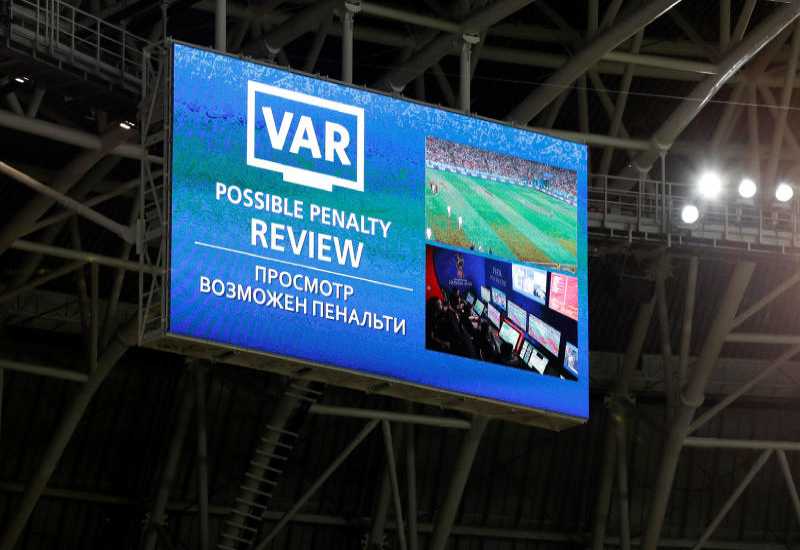×
The Standard e-Paper
Smart Minds Choose Us

General view as a penalty decision was referred to VAR and a penalty was subsequently awarded after Portugal's Cristiano Ronaldo was fouled in the penalty area by Iran's Saeid Ezatolahi. [Photo/REUTERS]
VAR has grabbed centre stage at the World Cup, with the system that was supposed to provide “minimum interference” instead having a major and highly controversial impact.